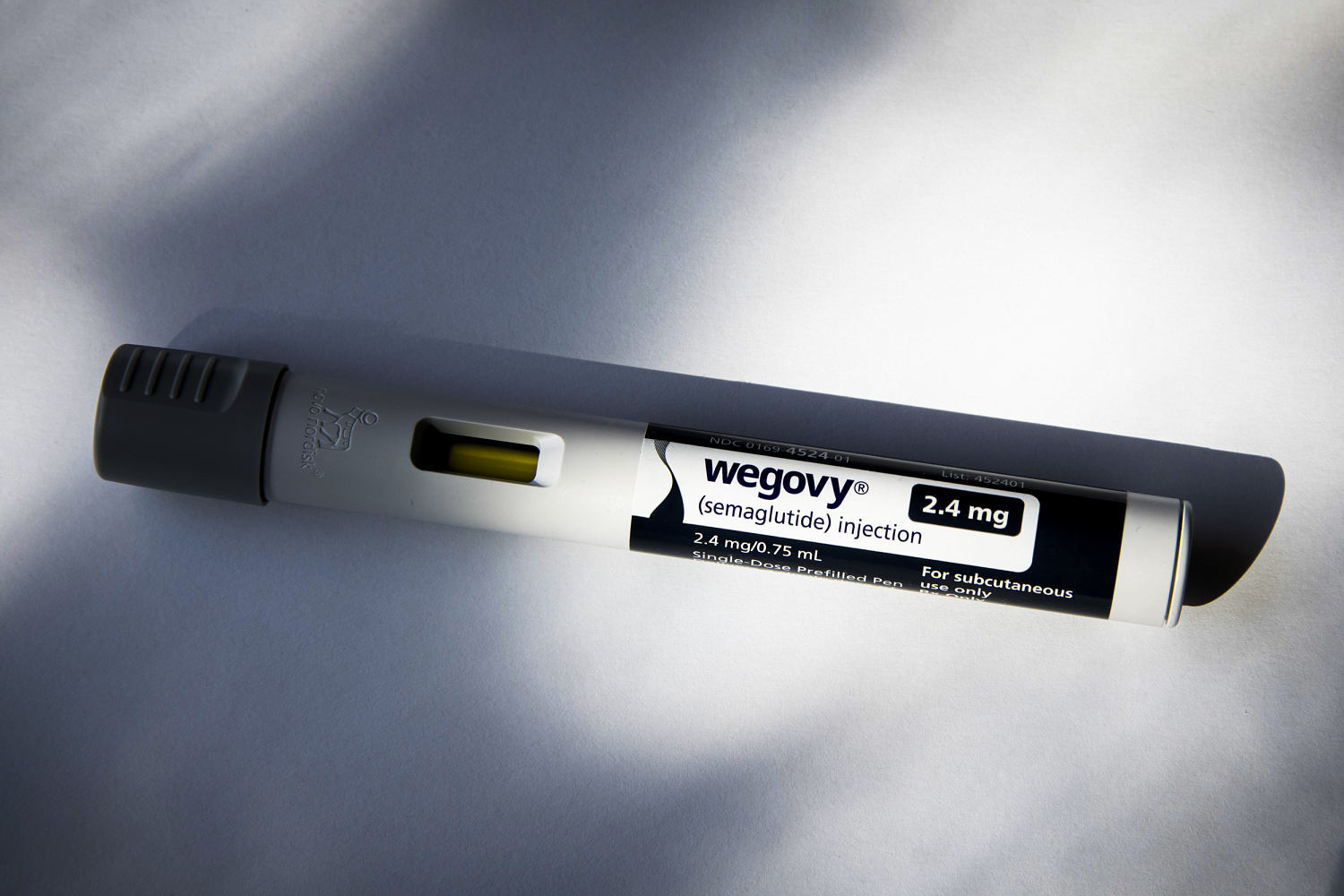
The weight loss drug Wegovy treated a serious form of liver disease in about two-thirds of patients in a major clinical trial, according to the findings published Wednesday in the New England Journal of Medicine.
Metabolic dysfunction-associated steatotic liver disease — previously known as nonalcoholic fatty liver disease — affects about 33% of adults in the U.S. About 5% to 7% have a more advanced form of the disease, called metabolic dysfunction-associated steatohepatitis, or MASH. (Another type of liver disease, alcohol-associated liver disease, is caused by drinking.)
Both conditions are the result of the body storing too much fat in the liver, said Dr. Sobia Laique, a liver doctor and the director of the Multidisciplinary MASLD Clinic at Cleveland Clinic. In people with MASH, the excess fat has started to cause inflammation, which over time can lead to scarring, or fibrosis.
Left untreated, it can progress to liver failure and liver cancer, Laique said.
Metabolic dysfunction-associated steatotic liver disease is more common in people with obesity or Type 2 diabetes, according to the National Institutes of Health. An estimated 75% of overweight people and more than 90% of people with obesity have the disease.
There’s only one FDA-approved medication for MASH, called resmetirom, Laique said. However, the medication only helps about a quarter of patients and doesn’t address the underlying conditions that drive the disease. Bariatric surgery is often the recommended treatment for those who can’t resolve the condition through lifestyle changes, she added.
“This is fairly monumental and really is going to be paradigm-changing,” Laique said of the Wegovy trial results, “because at least in the pharmacotherapy space, you don’t have a comparable drug yet.” She was not involved with the clinical trial.
The trial, funded by drugmaker Novo Nordisk, included 800 patients with MASH from 37 countries. Patients either got a weekly 2.4 milligram dose of semaglutide, the active ingredient in Ozempic and Wegovy, or a placebo, for 72 weeks.
The trial found that about 63% of patients in the semaglutide group saw a reduction in liver inflammation, compared with 34.3% of people who got a placebo.
Prior to starting the trial, the participants also had moderate to high levels of scar tissue in the liver, known as stage 2 or 3 fibrosis.
About 37% of the semaglutide group saw improvements in their fibrosis, compared with 22.4% in the placebo group. The semaglutide group also saw other benefits, including a 10.5% average weight loss.
Dr. Susan Spratt, an endocrinologist and senior medical director for the Population Health Management Office at Duke Health in North Carolina who was not involved in the study, said she was impressed, noting that once fibrosis has developed in patients, it’s often difficult to reverse or treat the inflammation.
“It’s incredibly good news that semaglutide not only reduced inflammation but also that fibrosis regressed,” Spratt said.
Dr. Christopher McGowan, a gastroenterologist who runs a weight loss clinic in Cary, North Carolina, said in an email that the results may offer hope for a condition with few treatment options but added that long-term data is to determine whether the improvements from the drug will reduce liver-related complications and death.
“These findings represent a very promising step forward in the fight against a common, progressive, and often silent disease,” McGowan said.
The trial results add to the growing list of conditions that GLP-1s — the class of drugs that includes Novo Nordisk’s Ozempic and Wegovy and Eli Lilly’s Mounjaro and Zepbound — can treat beyond diabetes and weight loss.
Last year, the Food and Drug Administration approved Wegovy to reduce heart disease risk in people with obesity. The agency also approved Zepbound for obstructive sleep apnea in December, and Ozempic to treat chronic kidney disease in patients with Type 2 diabetes in January. Researchers are also investigating whether the drugs are effective against Alzheimer’s and alcohol addiction.
Insurance companies are often reluctant to cover the drugs for weight; however, they’ve shown willingness to cover them when approved for other conditions, such as heart disease risk and sleep apnea.
In a release Wednesday, Novo Nordisk said the FDA could make a decision on whether to approve Wegovy for MASH as early as the end of the year.
The FDA has granted the drug a priority review designation, the drugmaker said, meaning it will review the application in six months, rather than the standard nine-month window.
Spratt noted that side effects can be a barrier for some who want to take Wegovy and similar weight loss drugs.
The drug was well tolerated, according to the trial results. The most common adverse events were gastrointestinal, including nausea, diarrhea, constipation and vomiting. Side effects leading to people dropping out of the trial were 2.6% for the semaglutide group and 3.3% for the placebo group.
Laique questioned whether patients would continue to see improvement after 72 weeks. She also noted that patients would likely have to continue taking the medication, or risk MASH coming back.
“It’s significant weight loss, but then is it also durable weight loss?” she said. “And I think that’s the part people often forget about obesity management, it’s two battles.”
